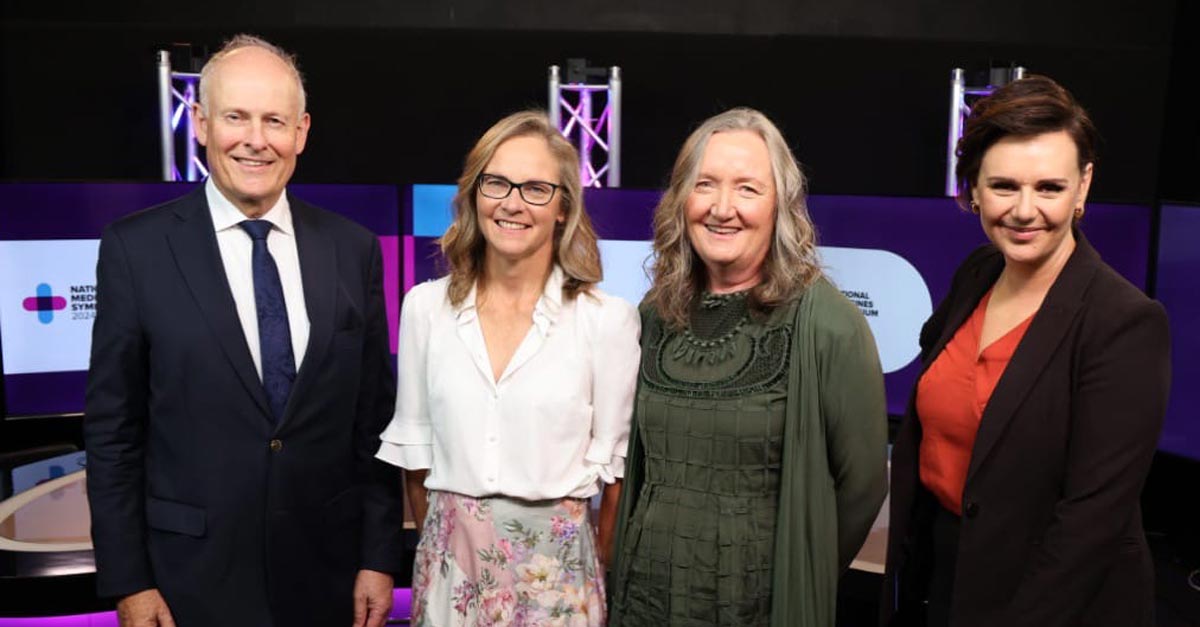WA’s ECP of the Year Jade Swarbrick MPS is passionate about holistic patient-centred care and mental health advocacy in her GP pharmacist role.
What led you to pharmacy?
I always knew I wanted to work in health care. But it was a neuropharmacology unit I completed at the end of my Neuroscience and Psychology degree that led me to pharmacy. Studying how endogenous neurotransmitters and medicines interact with the central nervous sytem, I wondered what courses would offer more pharmacology units. A few weeks later, I was enrolled in a Master of Pharmacy degree.
Why did you pursue accreditation so early in your career?
I’m a bit of a pharmacy nerd, and knew I was going to keep studying immediately after graduating. I sometimes can’t help myself – I’ll see an opportunity to learn something interesting or develop a new skill and I’m registered before thinking about where I’ll find the time. I also like some variation in my work week, so it felt like a no-brainer to both develop stronger clinical pharmacy skills, then have the ability to go out into the community doing Home Medicines Reviews one day a week.
How is your role as a GP pharmacist?
I’ve been a GP Pharmacist at Mead Medical for over a year now. I’m embedded in an amazing practice of GPs, nurses and administrative staff who are incredibly passionate about providing the best patient care possible, supporting ongoing learning/development and engaging in continuous practice-wide quality improvement. I’ve become quite involved in the chronic disease management program, which provides an excellent opportunity to complete a thorough medication review with patients who typically have complex medical comorbidities and polypharmacy.
Most of these patients have never had a medication review in the past and are very interested in understanding their medicines better.
How has becoming credentialed helped to shape your career?
Becoming credentialed was the first step that led to a whirlwind of exciting career opportunities over the past few years.
There is not a role I’ve worked in where it has not been an incredibly useful and fundamental skill to be confident completing a formal medication review and communicating recommendations to improve a patient’s management.
What’s most rewarding about working as a Care Coordinator?
I’ve been working as a care coordinator for 6 months with the CoNeCT MHE (Complex Needs Coordination Team Mental Health Expansion) at Fiona Stanley Hospital, which engages with individuals who have a mental health diagnosis and have been identified as the most frequent emergency department presenters across metro-wide hospitals in Perth.
We work with these patients to identify what barriers are preventing them from accessing appropriate support services in the community, or what gaps may be present in their health care.
Barriers include homelessness, substance-use/abuse, severe mental health conditions, limited financial resources or poor health literacy.
Each day can be different – but hugely rewarding when you have a win and see a positive impact on someone’s life.
My biggest recent highlight was securing housing for one of my patients who has been sleeping rough for over 3 years and, as a result, has had severely deteriorating health. I haven’t been able to wipe the smile off my face since we heard the good news!
A day in the life of Jade Swarbrick MPS, GP Pharmacist Mead Medical, Kalamunda, Perth, WA.
| 9.00am |
Medication review appointments Appointments start with the patient interview to reconcile medication lists, ask any medicine/condition-related questions and provide patient education. |
| 10.00am |
Report writing Patients seen by nurse to prepare GP Management Plan paperwork, while I review medicines of woman, 69, with T2DM, peristent microalbuminuria and diagnosis of CKD Stage 2 suggested. Recommend conversion of metformin/linagliptin dual therapy to metformin/SGLT2i for reno-protective benefits in comorbid CKD/T2DM. |
| 12.00pm |
Attend journal club Every second Tuesday the GPs team meets for CPD sessions discussing clincial updates, interesting case studies or QI projects. This week, I presented on the new Maudsley Deprescribing Guidelines, hyperbolic tapering of antidepressants and presented a case study on how to wean a patient off venlafaxine using the ‘slowest’ tapering strategy for a patient at high risk of withdrawal symptoms. |
| 2.00pm |
Follow-ups and monitoring Shorter patient appointments, monitoring newly initiated, changed, or ceased medications, like female, 70, with T2DM and increasing HbA1c, now 9%. On quadruple oral antihyperglycemic therapy. Recommend initiation on insulin dose titration. |
| 4.30pm |
Reporting time Data reporting for the WAPHA Non-Dispensing Pharmacists in General Practice Pilot Project. Patient interactions de-identified and recorded in the data collection tool so PSA and WAPHA can review the outcomes of the pilot project and advocate for the role of pharmacists in multidisciplinary teams in general practice. |
| 7.30pm |
Wind down After work I might go bouldering, or play some Baldur’s Gate 3 online. |



 National Medicines Symposium 2024 speakers (L to R): Steve Waller, Professor Jennifer Martin, Professor Libby Roughead, Tegan Taylor[/caption]
National Medicines Symposium 2024 speakers (L to R): Steve Waller, Professor Jennifer Martin, Professor Libby Roughead, Tegan Taylor[/caption]


 This CPD activity is sponsored by Reckitt. All content is the true, accurate and independent opinion of the speakers and the views expressed are entirely their own.[/caption]
This CPD activity is sponsored by Reckitt. All content is the true, accurate and independent opinion of the speakers and the views expressed are entirely their own.[/caption]










